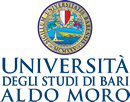Non posse suaviter vivi secundum Horatium: Bertolt Brecht e la propaganda augustea
DOI:
https://doi.org/10.15162/2465-0951/1099Keywords:
Bertolt Brecht, Horace, First World War, Propaganda, Nazionalism, SchoolAbstract
In a Bavarian Gymnasium, in an essay, a student harshly criticises a Horatian verse. It is not simply the outburst of a listless adolescent: it is 1916 and the young Bertolt Brecht, already author of poems imbued with nationalist rhetoric, can no longer tolerate the sententia according to which dulce et decorum est pro patria mori. After twenty centuries, the Augustan propaganda is still active, rearranged by the supporters of an intense patriotism. Calling into question Horace is a revolutionary act. However, this stance will not prevent Brecht from confronting himself with Horatian poetics. The Epicurean Horace remains an illustrious model, an emblem for that love for life which is at the core of many works of the German poet. This paper deals with the double fil rouge which links Brecht to Horace. In particular, It analyses the presence of Horatian echoes in the early works of the German poet, during the Great War and the immediately following years.Downloads
Published
2019-05-29
Issue
Section
The Old Lie. I classici e la Grande Guerra - a cura di Roberta Berardi, Nicoletta Bruno, Anna Busetto, Luisa Fizzarotti





